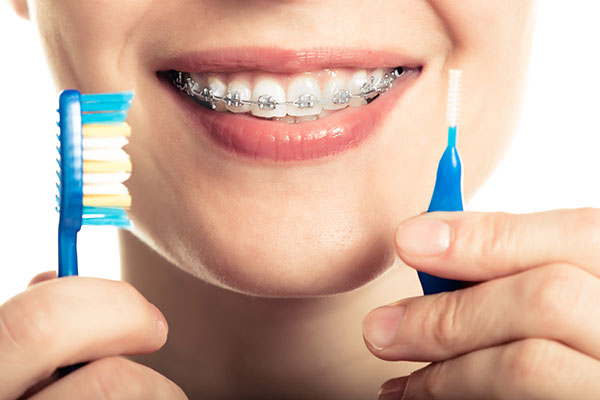Teeth Straightening FAQs: Why Should I Straighten My Teeth?

Most people consider teeth straightening because they do not like the appearance of their crooked teeth. But, there are a few other reasons to get your teeth straightened that do not have anything to do with your appearance.
Teeth straightening helps to keep your teeth healthy because having straight teeth reduces your chances of getting cavities in your teeth. This is because you can reach all your teeth without any problem. Crooked teeth are more difficult to clean properly, especially when your teeth are crowded.
Questions about teeth straightening
Does straightening my teeth mean I have to wear braces?
The simple answer to the question is no. Having crooked teeth does not mean that you have to wear braces. This is because technological advances have made teeth straightening easier. If you are worried about looking awkward with traditional metal braces, you can opt for other options like nano braces or clear aligners, which are not visible and will not ruin your appearance.
Nano braces are essentially the same as traditional braces but they are worn behind your teeth. Clear aligners are made from clear plastic and are removable, but they take longer than traditional braces to achieve the desired results.
How do braces work?
Braces are devices used to gradually apply pressure to your teeth and move them into their proper positions. They typically come as metal, ceramic or clear aligners.
How long do I have to wear braces for?
Most people have to wear braces for 18 to 30 months, but the amount of time you will have to wear braces for depends on the severity of your case. It is important that you get the braces that are right for you because they will be in your mouth for a while.
Can I play sports with braces in my mouth?
Yes, you will be able to play sports with braces in your mouth. Dentists recommend that, if you intend to do so, you should use a mouthguard to protect both your teeth and mouth from damage that can occur if you get hit in the mouth with braces on your teeth.
Does wearing braces hurt?
There is some discomfort for the first couple of days when your braces are first put in your mouth and every time you get it adjusted, but the pain is minimal. If you are in pain after getting your braces in, you can take over-the-counter pain relievers to reduce the amount of pain you are in.
Why do I need a retainer after teeth straightening?
After your braces have been removed, your dentist will recommend using a retainer to help keep your teeth straight. If you do not use the retainer as suggested, your teeth can shift back into their old positions, which will require getting braces again.
Conclusion
Having crooked teeth can ruin your smile and put you at risk of oral health problems, which is why dentists recommend teeth straightening. If you have crooked or crowded teeth, talk to your dentist to figure out the teeth straightening option that is best for you.
Call us today at (770) 800-0178 for more information from Lilburn Family Dentistry.
Check out what others are saying about our dental services on Yelp: Orthodontics.
Recent Posts
Restorative dentists aim to protect or restore your oral health, function, and appearance. Achieving these goals often involves repairing or replacing missing or damaged teeth. While they offer many restorative services, here are the five most common.A restorative dentist will introduce a dental bridge to ensure the teeth do not shift after a tooth is…
When sudden dental pain occurs, an emergency dentist can provide critical relief and timely treatment. A toothache often appears unexpectedly, disrupting daily activities or restful sleep at night, signaling that you need urgent dental care. Understanding what steps to take when this type of pain occurs can help prevent further complications to your teeth and…
Are you looking for a restorative dentist for your dental needs? Knowing where to start when beginning this search can be difficult, though you can utilize many resources. That said, you will need to consider a few factors when looking for the right dentist. Continue reading to learn more!Here are a few helpful tips for…
Oral surgery is sometimes necessary to correct issues that are beyond treatment from basic restorative or preventive care. A general dentist trained in oral surgery can often provide a variety of in-office procedures, offering both convenience and continuity of care. These treatments are performed in a comfortable setting, and they support long-term oral health, improve…


